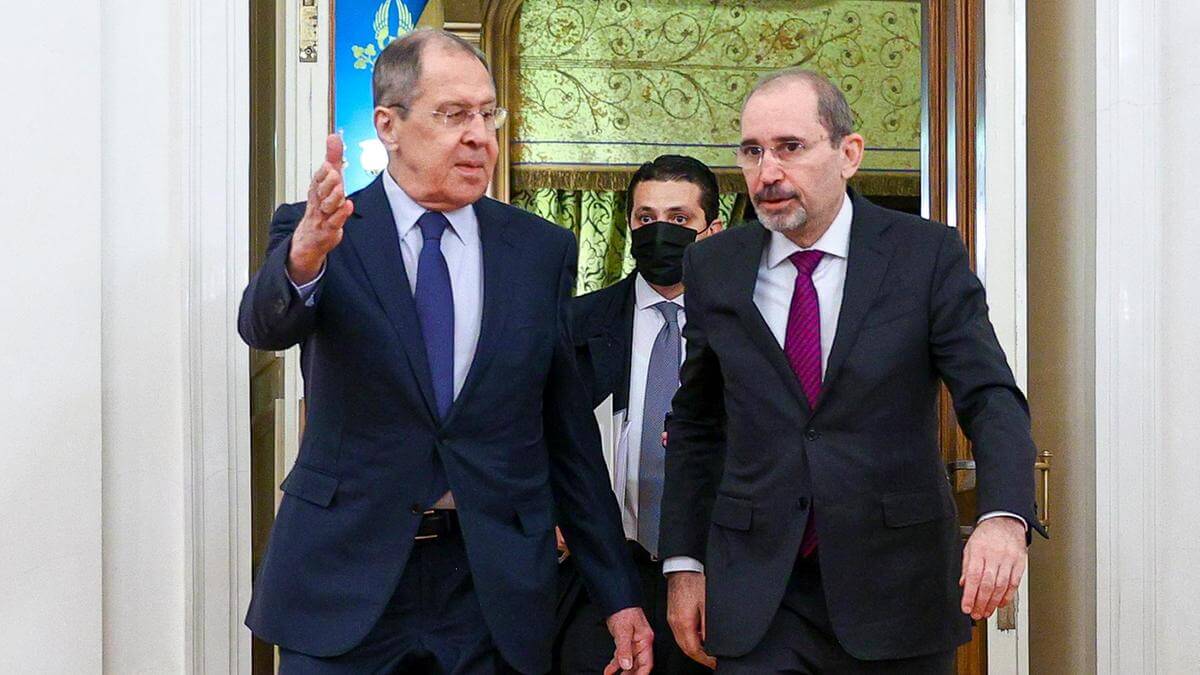The foreign ministers of Russia and Jordan held a meeting in Moscow on Wednesday and discussed ways to bolster bilateral cooperation and resolve regional security challenges. Russian Foreign Minister Sergei Lavrov and Jordan’s Deputy Prime Minister and Minister of Foreign Affairs Ayman Safadi committed to holding the regular meeting of the Russia-Jordan Intergovernmental Commission on Trade, Economic and Scientific-Technical Cooperation “as soon as the epidemiological situation permits” and vowed to work together on issues pertaining to nuclear energy, humanitarian relief, education, and security.
The officials also discussed the Israeli-Palestine conflict and reaffirmed their support for the resolution of the crisis through a peaceful settlement. Lavrov told reporters that the Palestinian issue was an important one for Moscow and stressed that there was no alternative to the two-state solution. He further welcomed the normalisation deals between Israel and Arab nations under the auspices of the United States (US) but said that it “must not be used to sidestep the need to create an independent Palestinian state”.
Also read: Russia Proposes Middle East Peace Conference in Moscow
This sentiment was echoed by Safadi, who condemned the current impasse in peace negotiations and called for renewed efforts to resume the talks and advance towards peace in accordance with international law, relevant UN resolutions, and the Arab Peace Initiative, launched by Saudi Arabia.
On Syria, the leaders stressed the need for continued dialogue, cooperation, and coordination with the Syrians themselves to not only reach a political solution to the crisis but also eradicate the remaining hotbeds of terrorism within the country and create conditions for the voluntary return of refugees (1.3 million of whom are hosted by Jordan), along with commencing international assistance for the reconstruction of the nation. Lavrov noted that cooperation on this front would continue under the Astana format, and noted that he and his counterpart also discussed the role the Arab League could play in addressing the challenges facing the Syrian people.
The ministers also discussed the situations in Iraq, Libya, and Yemen and agreed to cooperate to ensure peace and stability across the Arab Gulf and support efforts aimed at improving the situations in these nations through political dialogue. Lavrov said that Russia and Jordan were “striving to over the crisis phenomena in the Persian Gulf and ensure stability in this part of the Middle East.” He noted that they discussed relevant initiatives that could help achieve this goal, including Russia’s proposal to create a “collective security system” in the region, with the involvement of external actors.

